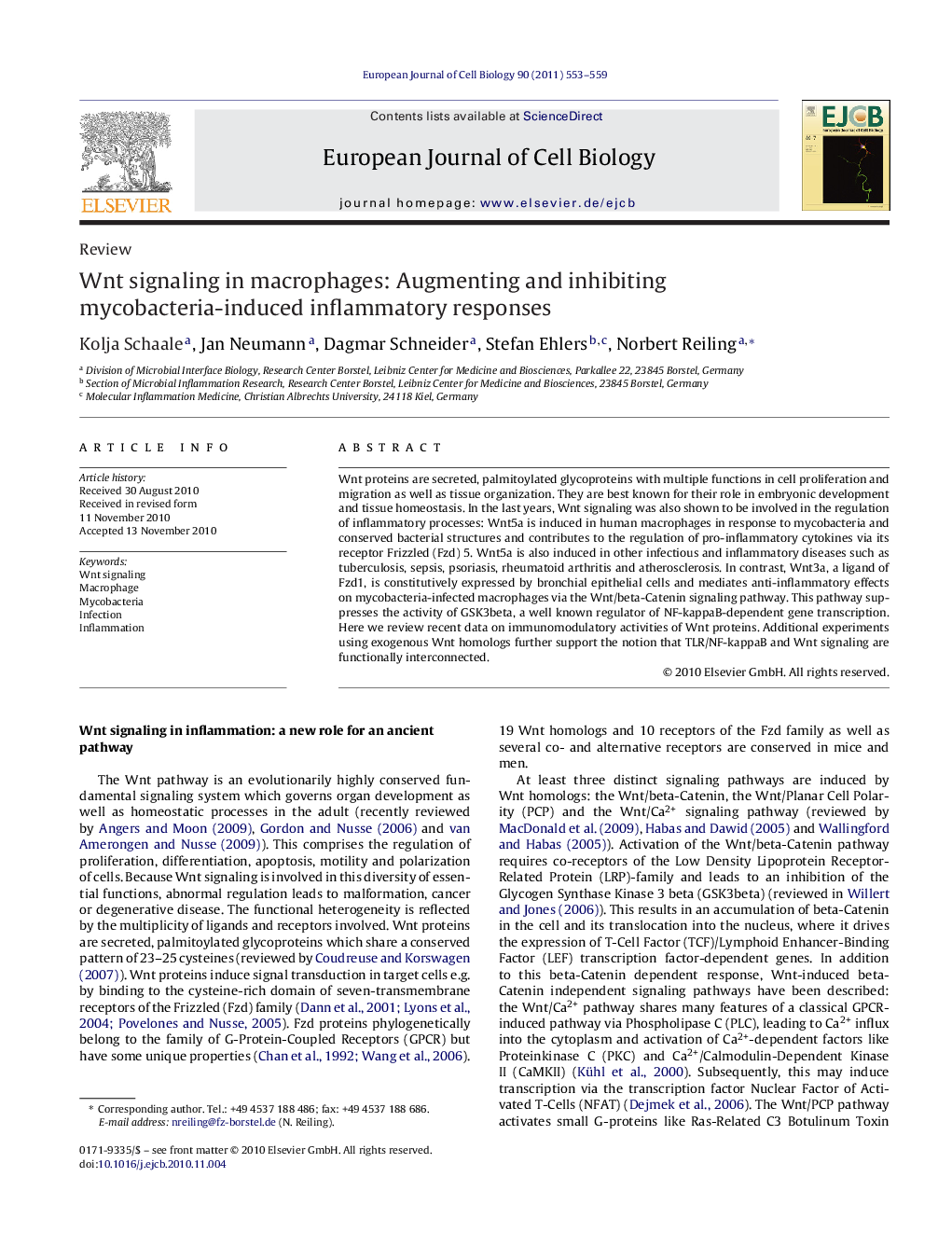| کد مقاله | کد نشریه | سال انتشار | مقاله انگلیسی | نسخه تمام متن |
|---|---|---|---|---|
| 2178704 | 1549714 | 2011 | 7 صفحه PDF | دانلود رایگان |

Wnt proteins are secreted, palmitoylated glycoproteins with multiple functions in cell proliferation and migration as well as tissue organization. They are best known for their role in embryonic development and tissue homeostasis. In the last years, Wnt signaling was also shown to be involved in the regulation of inflammatory processes: Wnt5a is induced in human macrophages in response to mycobacteria and conserved bacterial structures and contributes to the regulation of pro-inflammatory cytokines via its receptor Frizzled (Fzd) 5. Wnt5a is also induced in other infectious and inflammatory diseases such as tuberculosis, sepsis, psoriasis, rheumatoid arthritis and atherosclerosis. In contrast, Wnt3a, a ligand of Fzd1, is constitutively expressed by bronchial epithelial cells and mediates anti-inflammatory effects on mycobacteria-infected macrophages via the Wnt/beta-Catenin signaling pathway. This pathway suppresses the activity of GSK3beta, a well known regulator of NF-kappaB-dependent gene transcription. Here we review recent data on immunomodulatory activities of Wnt proteins. Additional experiments using exogenous Wnt homologs further support the notion that TLR/NF-kappaB and Wnt signaling are functionally interconnected.
Journal: European Journal of Cell Biology - Volume 90, Issues 6–7, June–July 2011, Pages 553–559